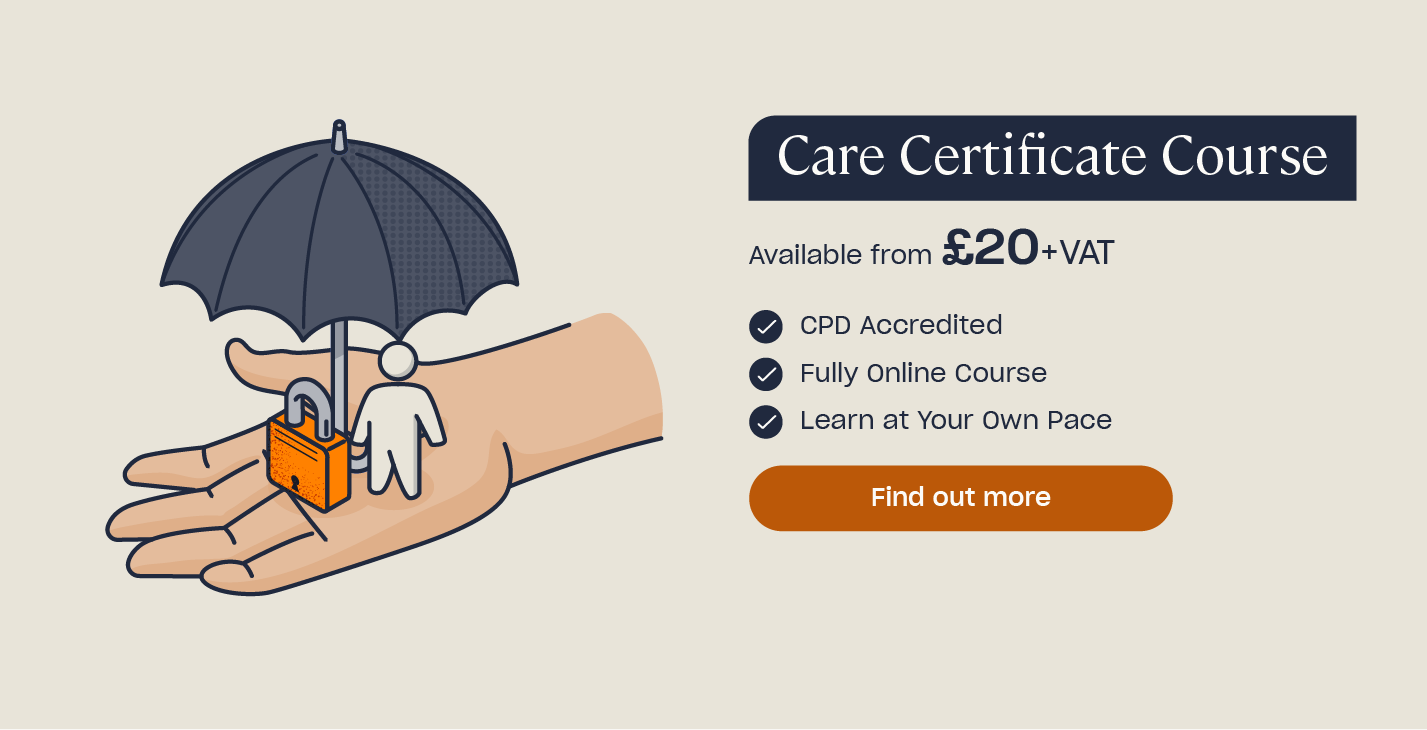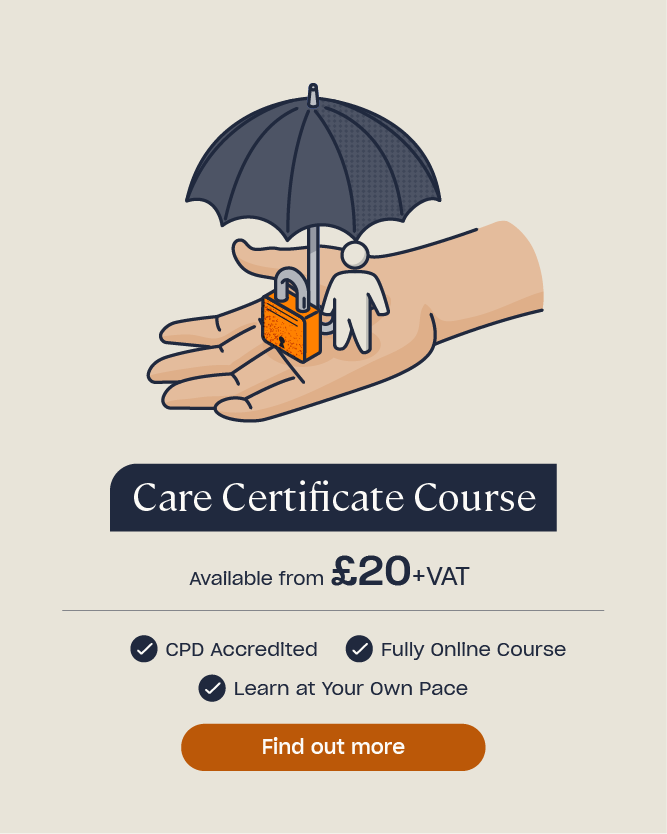What is Medication Management and Training for Carers?
Many of the individuals utilising health and social care services require medications to treat or manage a variety of medical conditions or to support their wellbeing. These medications not only come in different forms but can be administered in different ways, whether that be a capsule to be swallowed with water or pain relief to be delivered through a patch applied to the skin. Understanding key information relating to medications helps ensure they are managed, stored and administered correctly.
Within this article we will discuss responsibilities relating to medication management and administration and why it is essential for those who have this responsibility to gain the appropriate training and competencies to perform their duties safely. We will look at some of the strategies involved in medication management and the role of deprescribing within the health and social care sector.
What is Medication Training in Health and Social Care?
Undertaking medication training is a legal requirement for staff who have a responsibility for the management and administration of medication. All care workers within the health and social care sector must meet the health and safety standards outlined in Standard 13 of the Care Certificate. This states they must understand what medication related tasks and procedures they must not undertake until trained and competent.
There are several pieces of legislation and regulations that must be met when working with medications, such as the Health and Social Care Act 2008 (Regulated Activities) Regulations 2014, the Mental Capacity Act 2005 and the Misuse of Drugs Act 1971. Understanding the relevant rules surrounding medication is essential to ensure health and social care staff are working within safe and legal parameters and fulfilling their duty of care to keep service users safe and free from any potential risk of harm.

A key aspect of medication training in health and social care is understanding your role and responsibilities and the importance of working in-line with your competencies. Care staff must understand that they should never attempt any task they have not been appropriately trained to perform. Certain medications must only be administered by a qualified nurse or after additional specialised training has been given, such as the administration of an injection or a suppository.
Having a sound knowledge of all aspects of medication allows for safer, higher quality care to be delivered to those that need it. There are many different medications out there, but having a good general awareness of different types of medications and their uses helps reduce administration errors, protect the service user and better manage their care needs.
Want to Know More?
If you are new to care or need to refresh your existing knowledge, why not check out our Medication Training for Care Course? This course covers all areas of medication management and administration.
A good knowledge of medications increases the ability to spot any potential errors, to understand contraindications, to know how and when to report an issue or when to adapt the care provided. An example of the latter may be; by knowing that a particular medication is likely to cause nausea or drowsiness, a more empathetic, person-centred approach can be adopted. You wouldn’t plan or expect them to engage in certain activities when you know they are likely to be suffering such unpleasant side effects.
How to Identify Common Types of Medication
When dealing with a service user’s medication, you will likely deal with those prescribed by a doctor/nurse and issued by a pharmacy. But you also need to be aware of other medications they may have. The four main categories are:
- General Sale Medication – can be bought anywhere and without the need for a pharmacist or a prescription.
- Pharmacy Medication – they are purchased with a pharmacist present but do not require a prescription.
- Prescription Only Medication – can only be bought with a valid prescription that has been authorised by an appropriate healthcare professional. This medication is prepared by a pharmacist.
- Controlled Drugs – these have additional legal controls on their supply, storage and administration procedures.
There are many different types of medications and they are often administered in different ways and via different routes, such as orally (mouth), topically (skin) or nasally (nose). Being able to identify this information is essential to ensuring they are administered safely and that they work effectively.
This information will be provided in various places, such as the pharmacy label, the service user’s medication administration record (MAR), the patient information leaflet or attached to a pharmacy issued dosette box. Always follow the directions carefully.
Different Types of Medication
Here are a few examples of common types of medications a care worker is likely to come across and administer:
- Liquids.
- Tablets.
- Capsules.
- Inhalers.
- Drops.
- Patches.
- Creams.

Deprescribing in the Elderly
Deprescribing is the process of reducing or stopping a person’s medication in a planned and supervised way. This may be due to the medication causing them harm in some way, such as their side effects outweighing their benefit. Or they may no longer be effective. The aim of deprescribing is to maintain or improve a person’s quality of life, either by reducing medication burden, minimising unwanted side effects or allowing someone with capacity their right to make an informed decision about the medications they wish to take.
The role of a health and social care worker can be a significant part of the deprescribing process as they are often the person most likely to witness the impact taking certain medications has on an individual. Deprescribing is a process involving several parties, which ensures decisions regarding a person’s treatment are safe and in their best interest. Their family members and caregivers may also be involved in discussions with the prescribing doctor and the service user.
There are often many medical complaints that come with age and as such multiple medications are often prescribed to the elderly. Deprescribing requires a comprehensive review of medications and the decisions made are often focussed on the quality of remaining life. In many cases at the time of deprescribing in the elderly, this time is unlikely to be prolonged.
When managing the medications of the elderly, more regular medication reviews should take place to avoid the continuation of any unnecessary or higher risk medications. They should be closely monitored for any changes in condition or ability to take their prescribed medications.
The need for deprescribing or a reduction in over-medicating individuals has gained a greater awareness over recent years, particularly in the more vulnerable members of society, such as the elderly and those with learning disabilities or autism. The latter are often prescribed psychotropic medicines. These are a group of
medicines to help manage behaviour and change how the brain works. Some may be prescribed to be taken as and when required and are known as PRN (pro re nata) medicines.
STOMP is a collaborative national project combining many different organisations. It stands for stopping over medication of people with a learning disability, autism or both with psychotropic medicines. A lack of training, support and staff have all contributed to incidents of medicating individuals to make their behaviour more manageable. STOMP raises awareness of alternative ways to help support those in need to help avoid unnecessary medications. Social prescribing in this instance can prove very beneficial.

Medication Management Strategies
A service user will have a full assessment to determine whether they require support to manage their medications and what level of support they require. This information will be documented in their care plan. It is important to only provide the support required, otherwise there is a risk of hindering their independence and reducing their opportunities to actively participate in their own care.
There should be robust policies and procedures in place regarding medications and the National Institute for Health and Care Excellence (NICE) has a number of guidelines to follow for medication management within both care home and community settings. Some of the key areas covered are:
- Reviewing medicines.
- Receiving, storing and disposing of medicines.
- Managing concerns about medicines.
- Supporting people to take their medicines.
- Training and competency requirements of staff.
Medication management strategies can be put in place for key areas such as those mentioned above. This helps ensure each aspect of medication management is addressed by using them as the blueprint to create thorough, safe policies and procedures to which all staff can work. In turn, this helps to achieve the highest level of care.
There are many elements involved when managing medications and it is important the care worker is familiar with the different management strategies in place within their organisation, for example how to prevent vulnerable service users from accessing harmful drugs, how to promote independent management of medications or how to reduce medication administration errors.
A few example medication management strategies include:
- Having a locked unit available to keep medications away from vulnerable service users.
- Following protocol for storing controlled drugs.
- Liaising with the pharmacy to have medications placed in dosette boxes.
- Using alarms or alarmed pill boxes as medication reminders.
- Keeping accurate records of medication administration outcomes.
- Trying to minimise distractions for staff whilst they administer medication.
- Ensuring all staff responsible for medication have up to date, certified training.
- Working in-line with the service user’s care plan and risk assessment.

Having a comprehensive understanding of medication management comes from participating in medication training and through observation in the work setting. Experience will increase the care worker’s knowledge and provide them with a greater awareness of all aspects of medication. This will allow for greater insights into the need for deprescribing and many other areas of the service user’s wellbeing.
For those providing care within the health and social care sector, they should always do so to the highest standard of safety and quality. Having a robust and sound knowledge of medications, their management and their administration in-line with key legislation and guidance is essential for all staff with medication responsibilities. Only when fully trained and competent should staff carry out such duties.











